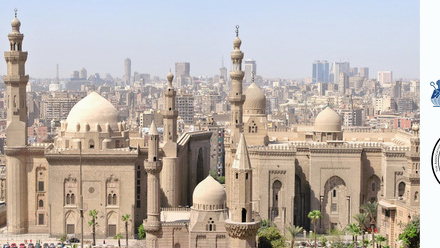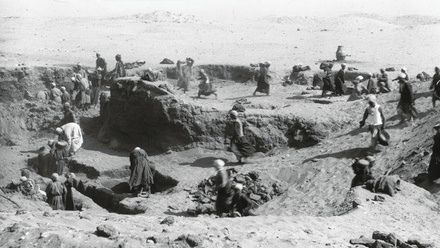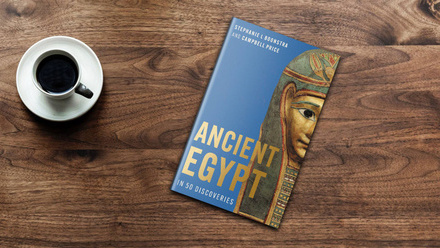Beni Hasan al-Shuruq survey
Beni Hasan al-Shuruq is a complex, multi-period site in Middle Egypt. It is best known for the New Kingdom Speos Artemidos rock-cut temple in the Wadi Batn al-Baqara, and this monument received most scholarly attention. The site also contains rock-cut tombs of the late Old Kingdom and of post-New Kingdom periods, which were excavated by John Garstang between 1902-1904. This work was however only summarily published. Slightly further south of the site, in 1958, Kaiser also found a 1st Dynasty tomb, expressing his opinion that more were present in the area.
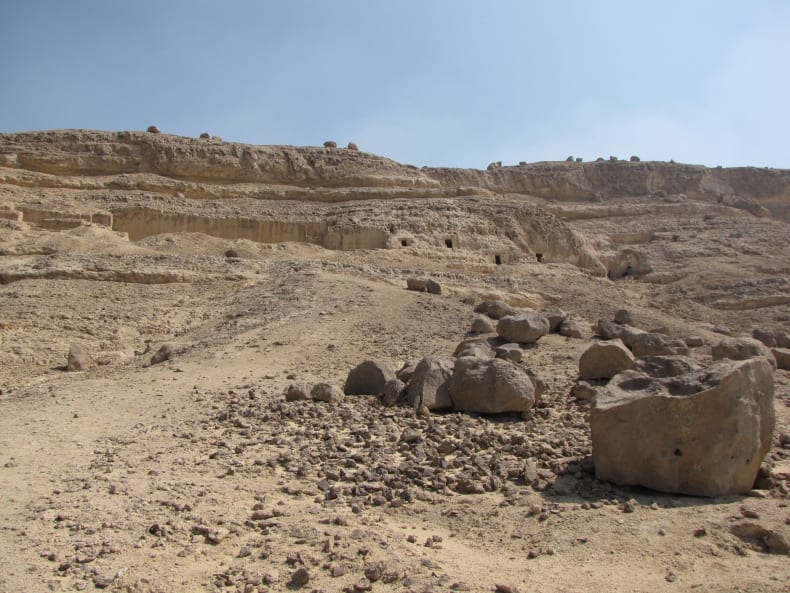 Early Old Kingdom tombs on escarpment below late Old Kingdom rock tombs
Early Old Kingdom tombs on escarpment below late Old Kingdom rock tombs
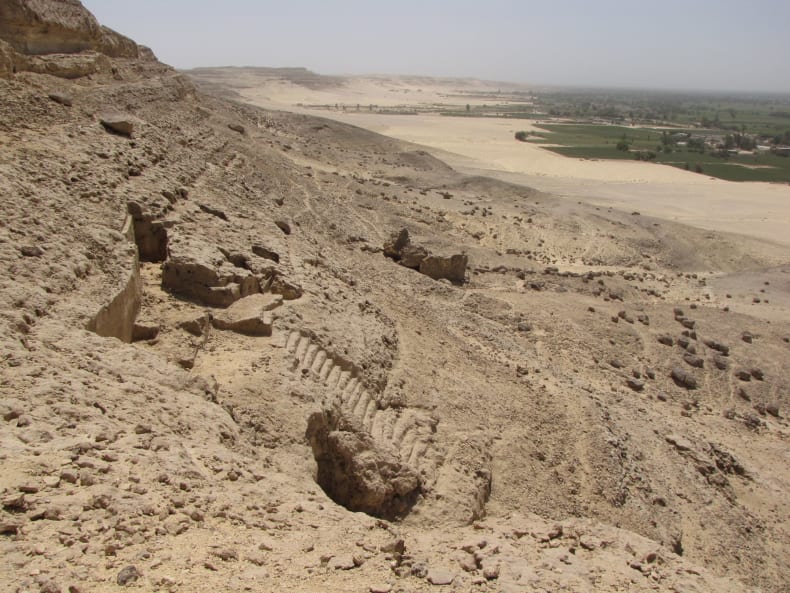 Old Kingdom rock-cut mastaba with early Old Kingdom cemetery on escarpment
Old Kingdom rock-cut mastaba with early Old Kingdom cemetery on escarpment
Brief surveys for the Dayr al-Barsha project led to the discovery of a large early Old Kingdom rock circle cemetery on the escarpment south of the wadi and early Old Kingdom remains also north of it. Moreover, it was possible to reinterpret some of Garstang’s late Old Kingdom finds.
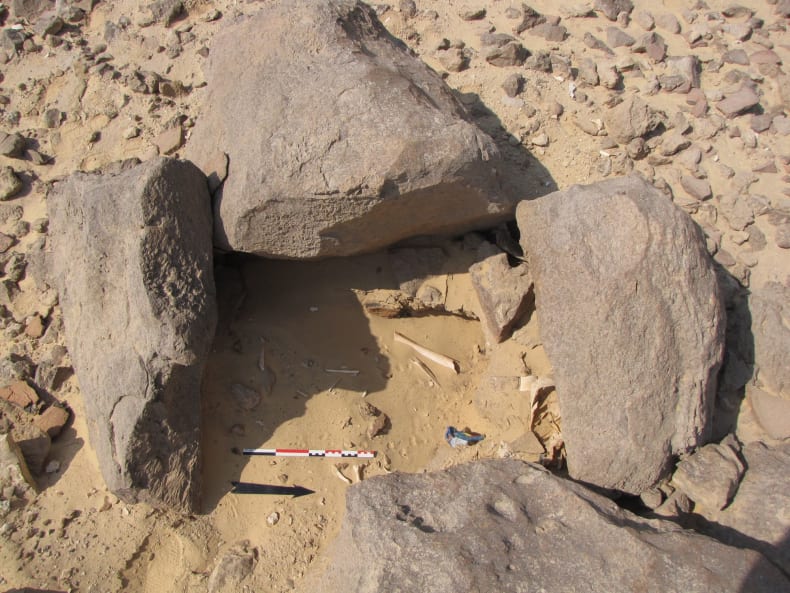 Early Old Kingdom rock circle tomb
Early Old Kingdom rock circle tomb
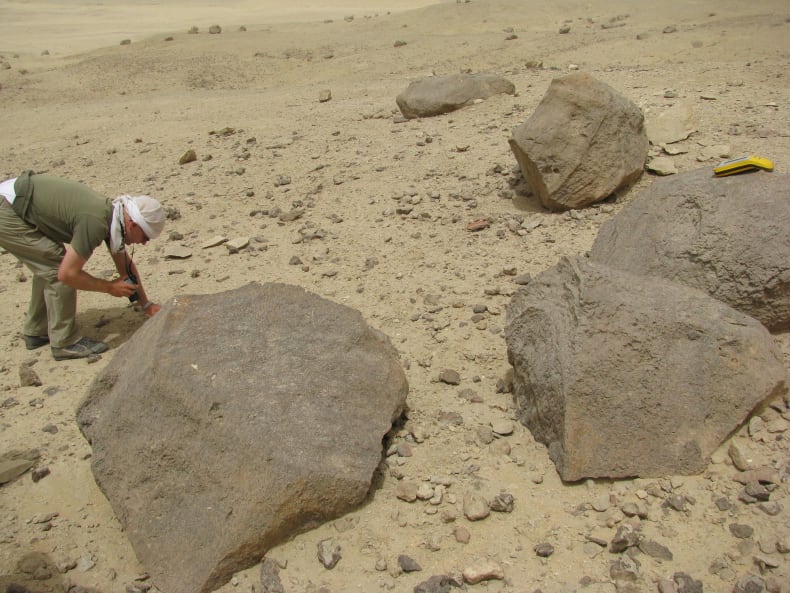 Bart examining early Old Kingdom surface sherds north of the wadi mouth
Bart examining early Old Kingdom surface sherds north of the wadi mouth
With the EES Centenary Award, a survey will be conducted by Bart Vanthuyne to document and map the different types of known tombs present in the cemeteries located in different areas of the site. In addition, he will try to identify some of the late Old Kingdom rock-cut tombs that Garstang excavated with extant excavation photographs now kept in the Garstang Museum in Liverpool. An attempt will also be made to relocate the area where Kaiser found a 1st Dynasty tomb.
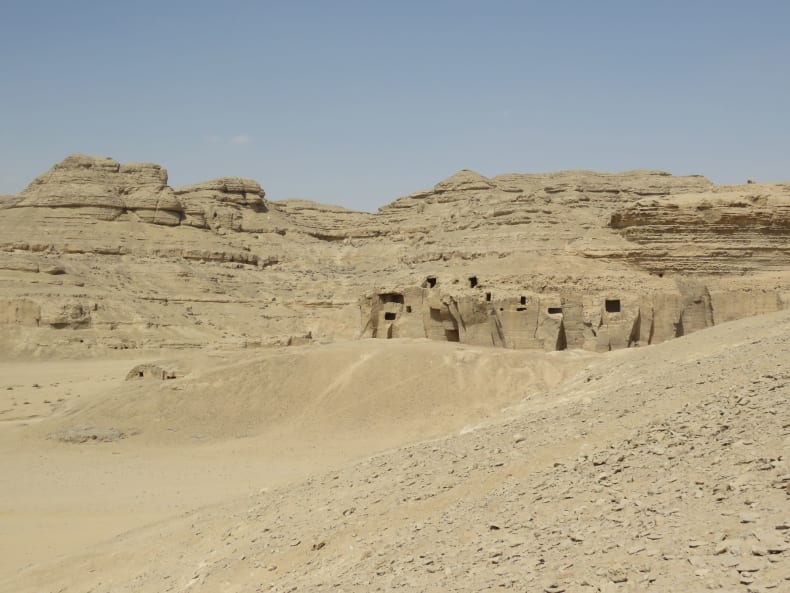 Late Old Kingdom rock tombs cleared by Garstang at mouth of the Wadi Batn al-Baqara
Late Old Kingdom rock tombs cleared by Garstang at mouth of the Wadi Batn al-Baqara
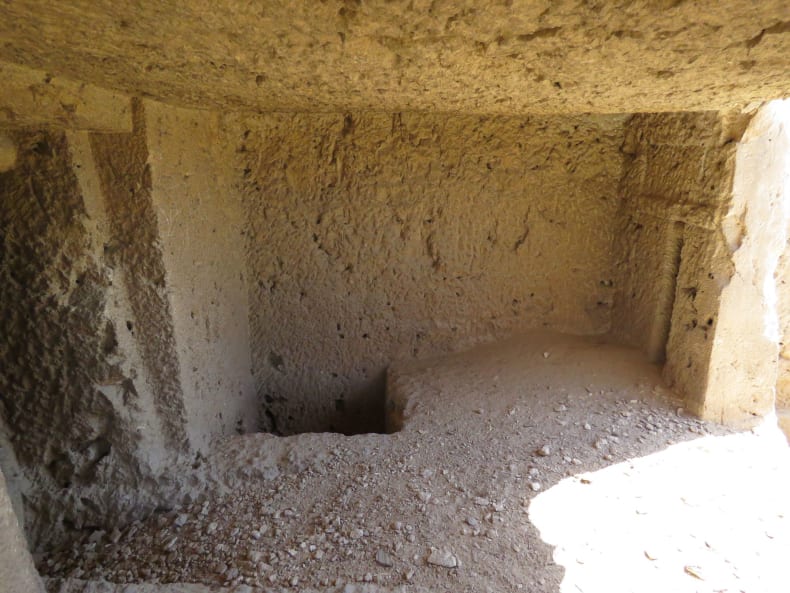 Interior of late Old Kingdom rock tomb
Interior of late Old Kingdom rock tomb
Satellite image analysis of the Wadi Batn al-Baqara, and the escarpments and desert plateaus north of south of the latter, will lead to targeted surveys of potential new archaeological features or identify terrain similar to where previously tombs were found in the region.
The result will be a series of maps recording the location of tombs of different time periods, enabling a better understanding of the use of the landscape and the chronological development of the site. This will be supplemented by the description of the different types of tombs. Collaboration is also envisaged with the Beni Hassan in Late Antiquity Project under the direction of Prof Scott Bucking (DePaul University) in order to incorporate the site’s development in Late Antiquity.
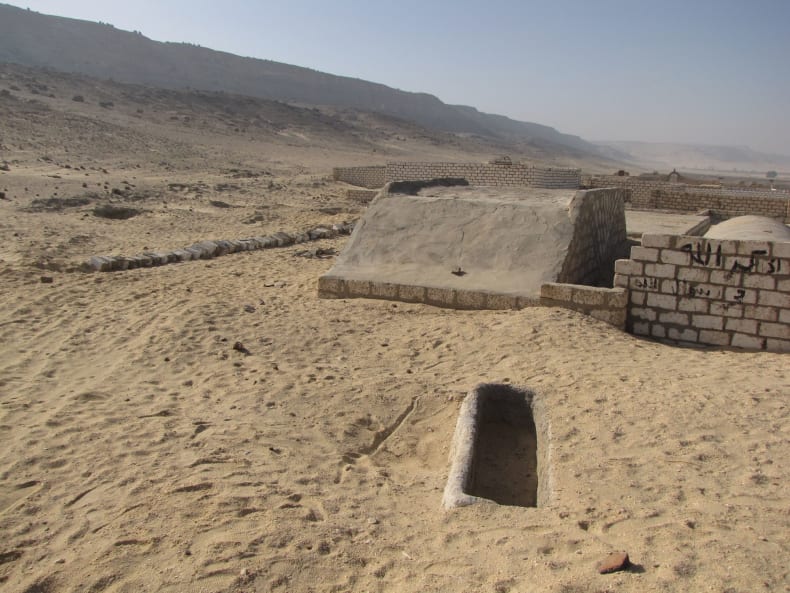 Empty Roman tomb in desert plain
Empty Roman tomb in desert plain
The outcome of the EES Centenary Award survey will be of primary importance to the Ministry of Antiquities and the local inspectorate as it will provide them with a map of known archaeological features in the region that can be used for site management.
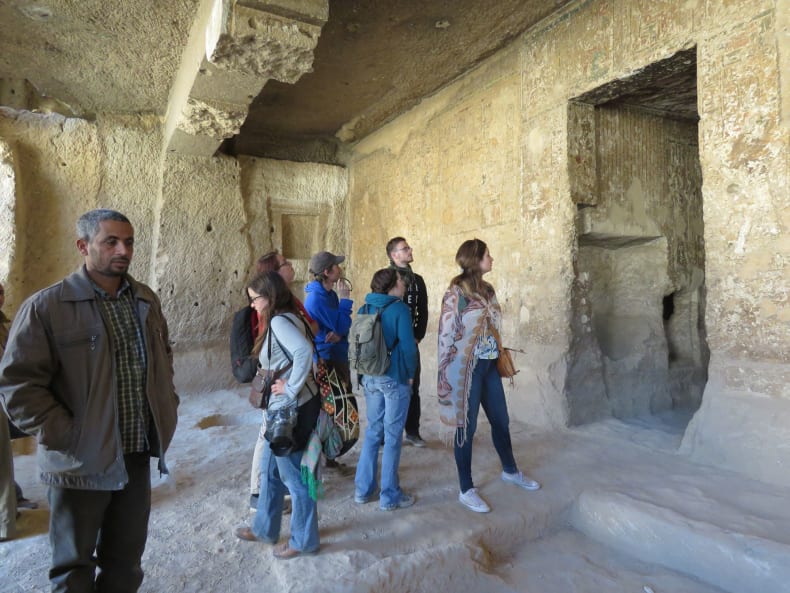 Visiting the New Kingdom Speos Artemidos temple
Visiting the New Kingdom Speos Artemidos temple
Further reading
Vanthuyne, B., Early Old Kingdom rock circle cemeteries in the 15th and 16th nomes of Upper Egypt. A socio-archaeological investigation of the cemeteries in Dayr al-Barsh?, Dayr Ab? ?innis, Ban? ?asan al-Shur?q and Nuwayr?t (PhD KU Leuven, 2017). Summary: https://bit.ly/2FTvd0P

